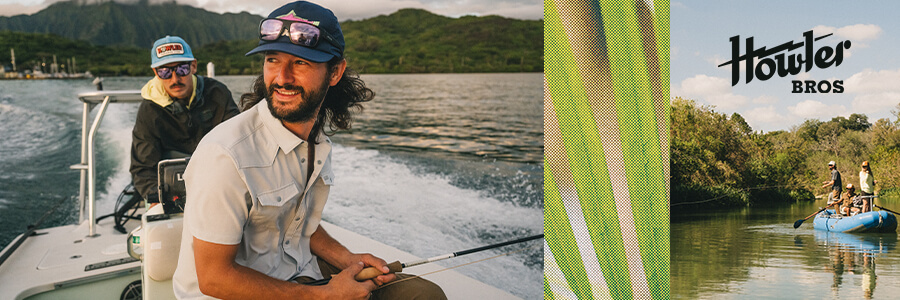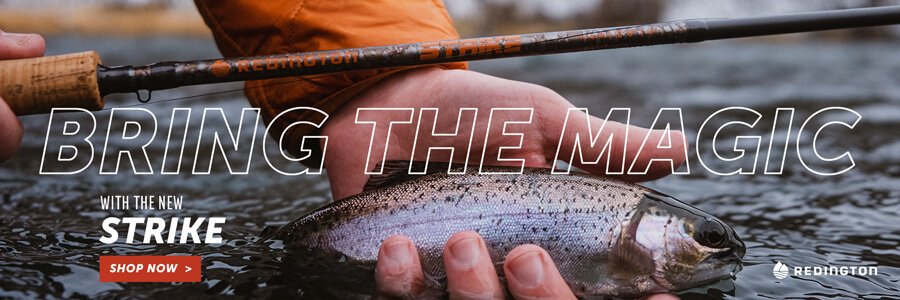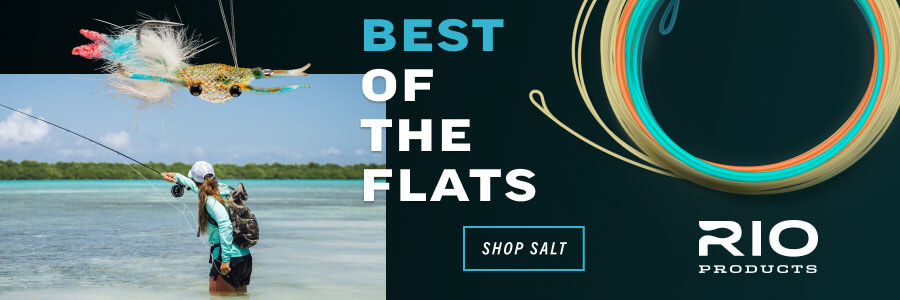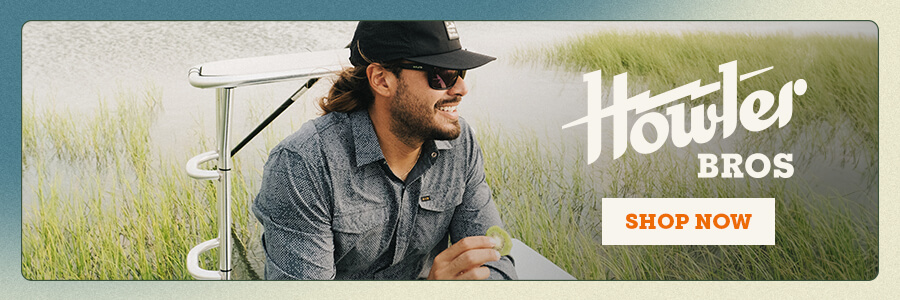Stay East, Young Man
Several years ago, a friend of mine brought up an issue I’d never spent the time to fully consider, despite being born out West and spending a large chunk of my adult life living here.
As per usual, this made me feel like a dummy.
“I could never live in the West,” he said. “Don’t get me wrong, I love it, but I think it would be irresponsible for me to move my family there, considering the water situation that part of the country faces. Yeah, the fishing’s good, but is the environmental cost worth it?”
When he said that, the busted circuitry and empty beer cans that rattle around in my head finally jolted to life and I got to pondering some of the choices I’d made, which is never a good thing. He made a valid point, and as someone who considers himself a fan of—and advocate for—conservation, it really gave me a good case of drinker’s remorse. Only this time, I’d been drinking water instead of delicious, delicious booze.
Should I have moved to Montana in the first place, or stayed down South, where to me a drought was running out of Mountain Dew and not an everyday environmental reality? Should I have gotten into the fly fishing industry, which directly depends on the usage of a rapidly depleting natural resource, or should I have followed through on my plans to open up a paint shop called Color Blind Colors, where customers could request whatever color they wanted and then I, a color-blind person, would attempt to match that color, often with disastrous results?
The lesson here, as always: I’m a man who makes a lot of mistakes. Was moving out West one of them? Am I part of the problem?
The water situation in the West is something we should all keep an eye on. According to data from the National Oceanic and Atmospheric Administration (NOAA), in June of this year, nearly half (47%) of the contiguous United States was classified as experiencing moderate to exceptional drought conditions. The heat map looks like someone with a paintball gun had a vendetta against the Rocky Mountains. Water levels are disastrously low across the western United States, meaning trout water is heating up, rainstorms are few and far between, and even looking at a brush pile the wrong way could start a million-acre fire.
Take Montana, for example. Right now, the Yellowstone River is running half of what it normally does and is closed to fishing from 2 p.m. until midnight every day. Paradise Valley is blanketed with a thick cloud of smoke from fires near and far; at times the river is barely visible. The Missouri, famous for being a consistently good tailwater, is running low and warm.It’s also closed from 2 p.m. until midnight, while several major rivers are closed entirely.
In addition, the West in general, and southwest Montana in particular, has seen an explosion in tourism and new homeowners. New flights to Bozeman from far-flung destinations are announced almost daily. Local fly shop parishioners are just as likely to tell you what city in California they just moved here from as they are to ask about the hot fly of the moment. Like many things, this can be both good and bad.
The West is an alluring place, there’s no doubt about that. The landscape is stunningly beautiful, at least in parts. The fishing can be awesome, at least sometimes. The summers are perfect, at least until the winter, which can start in September.
What I’m getting at here is this: the West isn’t in a great spot at the moment. This shouldn’t come as a surprise, but the states covered by the drought map are the same ones currently on fire. Out here, we’re all hoping for some relief to the suffocating smoke, intense heat, and something called “humidity” that I thought I got rid of forever when I left South Carolina.Is this just a weather cycle, or the start of something more sinister? And how should we, as anglers, react? There’s really no good answers, or at least answers everyone can agree upon. Fly fishing the West is something anyone who loves catching trout should do. It’s practically a rite of passage for anyone who’s ever held a fly rod. And it should stay that way. Being able to float down some of the most beautiful rivers in the country and catch nice fish on big dry flies is one of life’s most simple pleasures. But when those rivers are hot, flows are low, fish are stressing themselves to death, and entire states are either covered in smoke or fire itself, should we be attempting to realize our angling dreams at the same time?
The last thing I want is for this to come across as a “get off my lawn” old-man rant, but it’s likely too late for that. Yes, I feel the cold hand of death on my shoulder more firmly every day, but I’m a somewhat reasonable person. That being said, this is my main concern: How do we properly utilize and share the resources we do have without completely destroying them in the process? Should we shut down rivers on rotation to allow fish populations to face years without thousands of hooks shoved in their faces? Should we finally transition away from our reliance on fossil fuels and give the oil industry a big middle finger? I’m not sure what the answer is, or when or if we’ll ever find it.
My initial reaction was a simple one, however: Let’s just ban everyone from California. Can we all agree on that?




